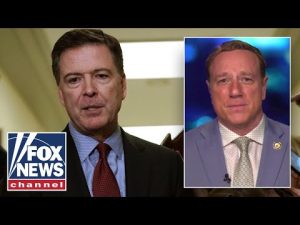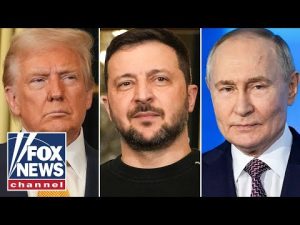In a delightful twist of irony, former President Donald Trump, usually remembered for his unorthodox approach to diplomacy, has quite vocally expressed his disillusionment with the Russian leader Vladimir Putin. From the hallowed halls of the White House, Trump remarked on what seems to be an unsatisfactory performance by the Russian forces in Ukraine. It’s like buying a ticket to an action movie only to find out the hero is still stuck in the popcorn queue—utterly disappointing. Trump pointed out that despite the massive investment in weapons and lives, virtually no new territory has been gained by Russia in Ukraine. One could almost imagine him giving Putin a rather unimpressed slow clap.
Now, while Trump’s disappointment is crystal clear, the Ukrainian resolve is far from being defeated. According to Kurt Volcker, a former NATO ambassador, the Ukrainian spirit remains as indomitable as ever. These people are clearly made of tougher stuff. In the face of relentless bombardment, they hold their ground, driven by the instinct to protect their homes and families. It seems they’re treating the battle not as a mere military operation but a fiercely personal crusade. Adding a dash of hope to their plight, Trump’s recent public acknowledgment of Russia’s faltering might has been a shot in the arm for Ukraine.
This stands in stark contrast to last year when the Trump administration wasn’t all that convinced about Ukraine’s readiness for peace. Trump, ever the scrutinous negotiator, seemed skeptical of President Zelenskyy’s intentions. But after some robust dialogue, it turns out Zelenskyy is indeed ready for peace talks, prepared to negotiate, and eager to roll out the red carpet for any semblance of ceasefire proposals. If only Putin could get with the program. According to Trump, he’s tried offering peace like a business deal, but old Vladimir pulls off a disappearing act every time responsibility comes knocking—like a teenager when it’s time to take out the trash.
Meanwhile, across the sea of diplomatic platitudes lies the harsh reality of conflict. Reporter insights reveal that Russian aggression is a far cry from a gentleman’s duel. The Russians are painting the town red with bombs, terrorizing civilians by targeting apartment buildings more than military installations. Ukrainians, on the other hand, have taken a more considerate approach, if there can ever be one in war—focusing on military facilities and energy infrastructure that impact military capabilities rather than civilian lives.
Given the circumstances, there’s more the world could do to aid Ukraine in its defense. For starters, the current level of sanctions seems to be about as impactful as a feather pillow in a bar fight. Volcker suggests turning up the heat with secondary sanctions, targeting companies and entities that dare to keep trading with Russia under the radar. The goal here is to squeeze the financial lifelines tight enough to leave the Russian economy gasping for air. In doing so, perhaps it can be ensured that future geopolitical skirmishes involve less brazen aggression and more thoughtful discourse. One can dream, right?







